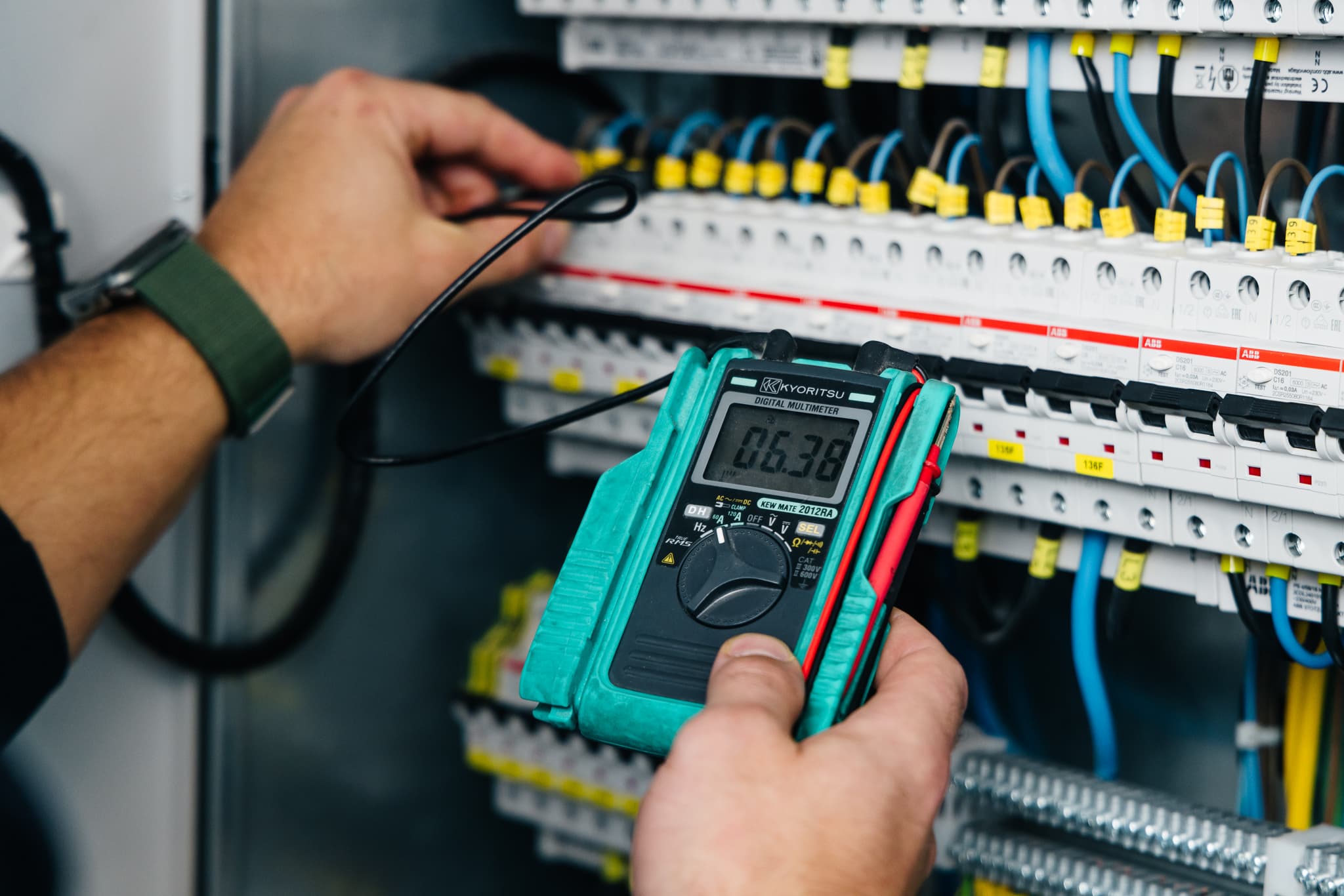Forus points out the most common reasons that can lead to unexpectedly high bills during the heating season

A legal obligation if the main fuse of the electrical system of a building exceeds 100 A.
To prevent accidents and fires.
The safety of your people –the systems are well-maintained and in good working order.
Regular maintenance of electrical systems ensures reliability and safety.
The maintenance of electrical systems reduces repair costs and extends the lifespan of the systems.
The maintenance of electrical installations is, simply put, the maintenance and inspection of electrical systems.
Did you know that many fires are caused by malfunctions of electrical devices? The purpose of maintenance is to ensure safe exploitation and prevent malfunctions of electrical systems. This can be achieved through regular inspection and maintenance.

Forus has qualified maintenance managers with the highest level (A) of qualifications. We are authorised to maintain all types of electrical installations. We provide maintenance services for large shopping centres, such as the Viru Keskus shopping centre and Solaris. Our clients also include all Lidl shops all across Estonia.
If the main fuse of your electrical system exceeds 100 A, the maintenance of the system is obligatory to you as an owner of a building.
Forus provides not only low-voltage but also high-voltage electrical maintenance for various facilities. These services require extensive electrical expertise, practical skills, and thorough knowledge of safety regulations. We hold all the necessary permits for maintaining and servicing different electrical installations and offer high-voltage maintenance services to large shopping centres, industrial enterprises, and substations where significant electrical power is used. High-voltage electrical maintenance is essential for all facilities where electricity is used or distributed at voltages above 1,000 V.
Our high-voltage maintenance services include inspection, routine maintenance, and fault management of substations, transformers, and power lines.

Industrial enterprises – buildings with their own substations, production equipment, or high-power electric motors.
Large buildings and real estate complexes – shopping centres, logistics centres, hospitals, or office buildings with their own electrical substations.
Municipal and infrastructure facilities – e.g., water treatment plants, pumping stations, railway stations, or airports.
Major real estate developments – facilities with their own high-voltage lines or distribution equipment.

Mostly for the protection of your people and material possessions. Every year, neglected electrical systems cause fires with devastating consequences.
Organising maintenance is required by law in many buildings and the Consumer Protection and Technical Regulatory Authority monitors compliance.
If the main fuse of the electrical system in your building exceeds 100 A, you as the owner of the building are obligated to organise maintenance.
The price of maintenance depends on the building and electrical installations, their current state and complexity. In addition, it depends on whether the maintenance specialist is expected to complete the necessary repairs independently or if another partner should be called on site.
Contact us – we will visit you and make detailed arrangements.
A maintenance manager is a person who is competent in electrical works and who can manage maintenance tasks and works related to electrical installations. As a minimum, a maintenance manager must have level B qualifications in electrical works. A company providing maintenance services must be recorded in the register of economic activities in the area of activity ‘Electrical works and maintenance’.
Forus has level A maintenance managers (highest level) and level B maintenance specialists of electrical systems.
First, they review the state and documentation of your electrical systems and map any issues.
A maintenance manager prepares a maintenance schedule for the regular maintenance of your electrical installations and organises maintenance and inspections. In the case of any deficiencies, an action plan must be prepared for rectification.
The inspection of electrical systems depends on the site – all buildings and electrical solutions are different. As a rule, a maintenance technician decides the detailed maintenance schedule for your building, stating the required frequency of maintenance and inspection of the systems. As very strict rules apply to fire safety, for example, emergency lighting must be checked every month. Emergency lighting is also inspected by an individual with electrical competence.

